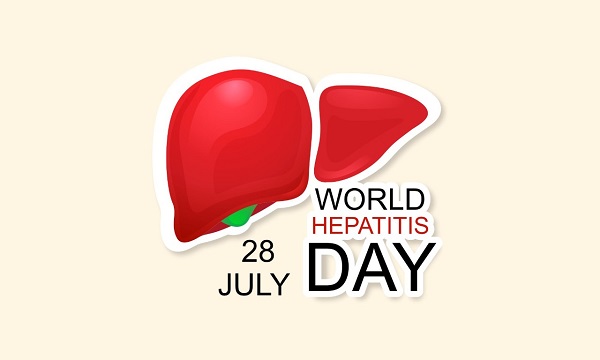
The Federal Government has launched Project 365, a year-long national campaign aimed at eliminating hepatitis by 2030.
The initiative responds to the significant health and economic burden posed by the disease, with an estimated ₦10.3 to ₦17.9 trillion lost annually to hepatitis-related complications.
Speaking at the 2025 World Hepatitis Day commemoration in Abuja, with the theme “Hepatitis Can’t Wait — Test. Treat. Eliminate,” Minister of Health and Social Welfare, Prof. Muhammad Pate said the campaign would prioritise mass screening, treatment and vaccination. He was represented at the event by the director of public health in the ministry, Dr. Godwin Ntadom.
Hepatitis, an inflammation of the liver often caused by viral infections (types A, B, C, D and E), remains a silent but deadly threat. Viral hepatitis, particularly types B and C, can lead to liver cirrhosis, liver failure and cancer if left untreated. It is frequently misdiagnosed as malaria, resulting in late detection and high mortality rates.
According to the minister, 18.2 million Nigerians live with Hepatitis B, while 2.5 million are infected with Hepatitis C. He said the Federal Government is establishing the Viral Elimination Fund (VEL) to support diagnostic and treatment efforts, particularly for vulnerable and hard-to-reach populations.
As part of this campaign, free hepatitis testing commenced at the National Assembly to encourage lawmakers and staff to know their status and rally legislative support for increased hepatitis funding. Pate also announced regulatory reforms, tax incentives and new policies to stimulate local manufacturing of hepatitis diagnostics and medicines.
He explained that Project 365 aligns with Sustainable Development Goal (SDG) 3 and the WHO Global Health Sector Strategy, reinforcing Nigeria’s commitment to achieving global health targets.
Former Head of State and Nigeria’s presidential ambassador for viral hepatitis, Gen. Yakubu Gowon (Rtd.), sent a goodwill message urging citizens, stakeholders and institutions to work collectively to eliminate hepatitis by 2030. Represented by Adeyeye Ajayi, Gowon commended the Ministry of Health, the World Health Organisation (WHO) and frontline healthcare workers for their tireless efforts.
“Together, we can overcome stigma, misinformation and limited access to testing and treatment,” he said, encouraging cross-sector collaboration. “Let us reaffirm our commitment to eliminating viral hepatitis. May this World Hepatitis Day inspire hope, unity and progress toward a hepatitis-free Nigeria and world.”
Dr. Titilola Munkail, technical officer for disease control and prevention at Africa CDC, represented Dr. Oluyinka Olayemi and praised Nigeria’s leadership in combating public health threats. She expressed confidence in the country’s capacity to lead regional elimination efforts.
“We are hopeful that Nigeria will continue to set the pace in eliminating harmful diseases,” she stated, reaffirming Africa CDC’s solidarity with the country.
Also speaking, WHO’s team lead for communicable and non-communicable diseases, Dr. Mya Ngon commended Nigeria for its continued commitment to hepatitis elimination. She applauded the government and partners for prioritising access to testing and treatment and for reducing the cost of care.
Ngon noted that while progress has been made, challenges remain. “There are still significant barriers, but Nigeria and several African countries are demonstrating remarkable resolve,” she said.
She praised the integration of hepatitis efforts into broader disease control strategies, the launch of the Hepatitis Elimination Initiative and steps toward increased domestic financing and data-driven planning. She called for sustained momentum to ensure no one is left behind.
Dr Ibrahim Ehizogie of the Nigerian Correctional Service (NCoS) reiterated the agency’s support for viral hepatitis elimination in custodial centres. He said the inclusion of inmates is essential for nationwide impact.
He revealed that under the Viral Hepatitis Action in Correctional Service programme launched in December 2024, 830 inmates had been screened at the Medium Security Custodial Centre in Kuje out of a population of 1,050. The programme, initially piloted at national headquarters, is now being expanded to all six geopolitical zones with a long-term goal of covering all 300 custodial facilities.
“Many inmates arrive already infected and some contract the disease in custody due to high-risk practices,” he said. “Without reaching these closed settings, full elimination cannot be achieved.”
He appealed for sustained partnerships and support for correctional centres, underscoring the importance of inclusivity in national health programmes.
National coordinator of the National HIV/AIDS, Viral Hepatitis & STIs Control Programme (NASCP), Dr Adebola Bashorun reaffirmed that Project 365 is a bold, community-driven initiative. He said it would offer daily outreach across all 360 constituencies through mass testing, treatment and preventive vaccination.
According to Bashorun, hepatitis prevalence in Nigeria stands at 8.4 per cent, with Hepatitis B accounting for 8.1 per cent and Hepatitis C at 1.21 per cent, translating to more than 21 million Nigerians affected.
“Those diagnosed with Hepatitis C will receive curative treatment and individuals who test negative for Hepatitis B will be vaccinated,” he said. He also noted that co-infection with HIV and hepatitis requires integrated care, with 1.21 per cent of HIV-positive persons also living with Hepatitis B.
Bashorun explained that lawmakers will play a key role in mobilising their constituencies and providing leadership throughout the year-long campaign. He assured that the government would sustain the effort until the next World Hepatitis Day in 2026.
Regarding funding, he said the World Hepatitis Fund would now operate as part of a consolidated sector-wide approach (SWAp) under the ministry’s leadership. This integrated funding strategy, which also includes the Basic Healthcare Provision Fund (BHCPF), will ensure flexible, sustainable and coordinated hepatitis response efforts.
He said the ministry is also prioritising custodial centres in the hepatitis response plan due to the high risk of transmission in prison settings.
“This approach reflects the government’s broader health security agenda and its drive toward inclusivity,” he said.
The launch of Project 365 marks a critical turning point in Nigeria’s hepatitis response, with multi-sectoral efforts now in full motion. The 2025 World Hepatitis Day theme underscores the urgency of testing, treatment and elimination — a message the Federal Government has now turned into a year-round, nationwide mission.

